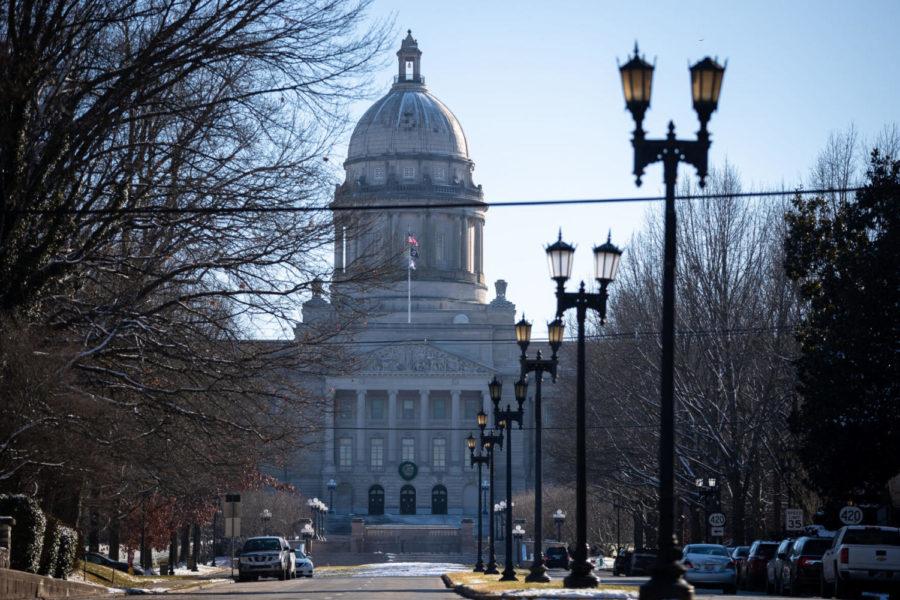Game over: UK can no longer hide behind its lawsuit
The Kentucky State Capitol on Friday, Jan. 29, 2021, in Frankfort, Kentucky. Photo by Michael Clubb | Staff.
August 26, 2021
You may or may not have heard of James Harwood, a former associate professor at the University of Kentucky who was allowed to resign in 2016 after he was accused of sexual harassment and sexual assault.
The reason you might not have heard of him is because for six years, UK fought and eventually lost a legal battle with the Kentucky Kernel over the investigation files dealing with Harwood.
Now, years later, here is what we know:
-
UK used the Family Educational Rights and Privacy Act, a protection of students’ educational records, as a reason to withhold the files from the Kentucky Kernel.
-
The Kernel did not want the victims’ names, and wanted the university to redact names and identifiers from the documents before turning them over. However, UK still refused to hand over the documents, rendering its FERPA argument invalid.
-
The Kernel obtained the documents after then Attorney General Andy Beshear said they should be public.
-
UK’s President Eli Capilouto later said that by publishing an article about the investigation, the Kernel was releasing “Salacious details.” After this statement, he refused to give formal investigation documents.
-
The Kernel took UK to the Court of Appeals for violating the Open Records Act.
-
The Supreme Court unanimously ruled in favor of the Kernel in Kernel Press v. University of Kentucky. The court decided that there may be redactions, but UK cannot exempt the entirety of the documents from disclosure.
Within the redacted investigation documents, the Title IX Coordinator and investigator Martha L. Alexander wrote, “Complainants presented witness and documentary evidence that was sufficient to support a finding that the alleged behavior more likely than not occurred.”
The Kernel is unsure why Harwood was allowed to resign and keep his health benefits for four months after his resignation date. Harwood was also given confidentiality and non-disparagement disclosures in his resignation agreement.
UK spokesperson Jay Blanton told the Kernel that to fire him, the university would have to revoke his tenure. That process would take up to two years, which Blanton described as “lengthy,” before UK proceeded to join a six year legal battle with the Kernel over the records.
Blanton said that tenure revocation is too long of a process for UK because it wanted to get the threat off of campus as soon as possible.
However, because of its provisions, Harwood’s resignation agreement protected him from disclosing the allegations to any future employers, including universities.
So why did UK allow Harwood to resign? Why did it keep the documents private for so long?
Money was not an issue for UK, as Blanton said the university spent $52,368.47 for its own outside counsel for the case, in addition to paying $30,000 of the Kernel’s legal fees.
The answer: UK wanted to protect the brand of being a safe environment for students to live and learn. What good parent wants to send their child to a school with a sexual predator among its faculty? The university knows that a happy student becomes a happy alumnus, ready and willing to keep supporting their alma mater for years after walking across the stage at graduation.
UK tried to play the long game.
In reality, UK has only shown it’s willing to put the safety of its students at risk in order to maintain an appealing image.
But in the end, after six long years of fighting Kernel journalists, advisors and attorneys, UK has reached the same outcome it would have by following the law and turning investigation documents over to the Kernel.
Thanks for playing, UK. But when we lose sight of the truth, no one wins.



























































































































































